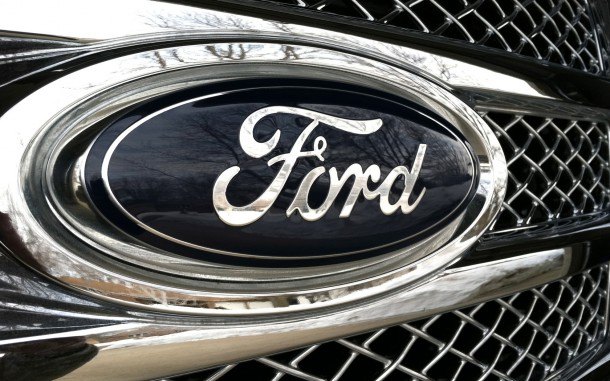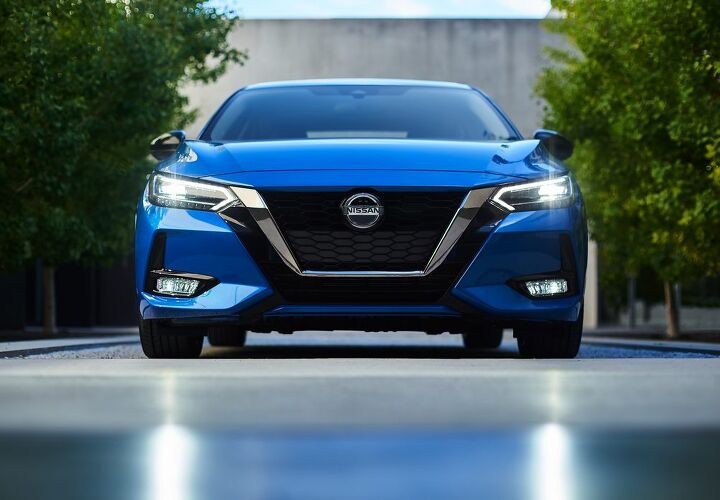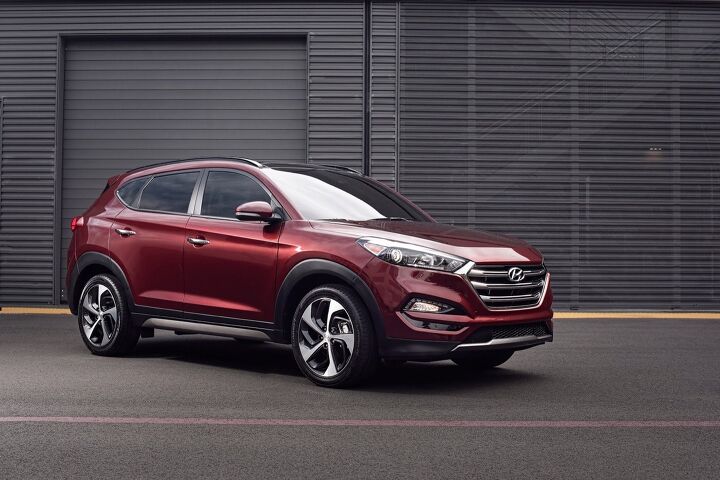#FleetSales
QOTD: What's Happening With Tesla?
Mr. Guy wrote this morning about Tesla and how it appears that the company's cars are being sold to rental fleets. As most of you know, large fleet sales are often seen as a negative mark on the health of a company and can also tank resale values.
Gas War: GM Now Sucking Up to California to Maximize Fleet Sales
General Motors has issued a letter to California Governor Gavin Newsom promising that the automaker is now fully committed to complying with the state’s aggressive emission regulations. This follows an earlier announcement from GM advancing plans to eliminate tailpipe emission from all light-duty vehicles by 2035 via electrification. The company had also increased global spending to develop EVs to $35 billion (USD) through 2025, which is roughly a third more than it had previously been targeting.
Of course, don’t think this has anything to do with altruism or formal commitments to some grand cause. California was simply planning to bar any automakers that hadn’t previously vowed to adhere to its strict regulatory policies from selling to state government fleets. While GM has been in the process of changing its allegiance, the business originally sided with automakers approving of the Trump administration’s regulatory revisions that were at odds with the region.
December Auto Sales Still Looking Weak
While the official figures haven’t dropped, just about every outlet tracking new vehicle sales is projecting a significant decline in volume for December 2021. Showrooms have been trending toward the minimalist aesthetic since 2019 with the pandemic kicking things into overdrive as supply bottlenecks nullified practically every manufacturer’s ability to produce anywhere near its normal pace.
Last December was bleak, with sales falling by around 5 percent for the month as the typical transaction price for automobiles set new records. The U.S. market only saw 1.54 million sales, the lowest volume witnessed since December of 2014. But 2021 volumes are shaping up to be decidedly worse. This month is on track to fall by anywhere from 23 to 30 percent with retail sales barely cresting 1 million units as transaction prices for both new and used vehicles surpass all previous metrics.
Could Ford's Electric Fleet Sales Be Slower Than Expected?
Despite most automakers proudly proclaiming their intention to shift toward EV-dominant portfolios, customers haven’t been sharing their enthusiasm. While there’s a subset of loyal early adopters that are eager to see electrification become the norm, the relative infancy of the technology and prevalent gaps in the charging infrastructure has kept them from becoming a majority. But manufacturers seem to think it’s just a matter of time and that they’ll be able to make up the difference through fleet sales.
Advertised with lower than average operating costs and juicy subsidies being offered throughout the developed world, automakers have convinced themselves that EVs will soon become the de facto rides for various entities needing to round out their stables. Meanwhile, we’re hearing inklings that Ford is seeing pushback from fleet customers over its s new F-150 Lightning pickup and E-Transit van.
Ford's Upcoming E-Transit is Kansas City Resident, Means $100M Plant Investment
As we reported a couple of weeks ago, Ford is set to debut its new E-Transit electric van tomorrow. An announcement was made yesterday regarding the Transit’s production location. And the new van brings along some cash, and jobs as well.
They Wanted Fewer Fleet Sales, and They Got It
Replay the last couple of years and you’ll hear a chorus of automaker pledging their allegiance to sustainable business practices. Streamlined operations, pared-down lineups and build configurations, reduced incentives, and a newfound preference for retail sales over the volume-at-all-costs approach. No single company touted this more than Nissan, though it was hardly alone.
The coronavirus pandemic, in some cases, sped up the need to find firmer financial footing, even if incentivization became the name of the game in order to move any car or truck. One thing’s for sure: fleets, especially rental fleets, sure weren’t interested.
3,516 Lightly Optioned Cars Burn in Florida
A weekend blaze cut short the lifespans of more than 3,500 vehicles packed tightly into a single massive overflow lot near Southwest Florida International Airport in Fort Myers, Florida.
While the cause of the vehicular firestorm has not yet been determined, the resulting carnage is something to see. Despite dozens of water drops by local sheriff’s office helicopters, the overflow lot, ringed with acres of dry grass, proved the perfect econobox tinderbox.
Nissan Flees Fleet Reliance With 2020 Sentra
While fleet participation helped Nissan boost its sales volume for years, management feels it hasn’t done the company any favors in terms of profitability. As such, the company says it wants to take the 2020 Sentra out of the rental circuit. If you borrow a vehicle from rental agencies more than never, you’ve probably noticed Nissan’s compact sedan is often the default choice when the supply of Chevrolet Sonics or Toyota Corollas dries up.
Expect less of this moving forward, but be warned it’s not the dream scenario you envisioned. First off, there will undoubtedly be leftover 2019 models on rental lots for some time. Secondly, Nissan improved the 2020 Sentra to a point where you might actually prefer it. The manufacturer made no small effort effort to shore up the sedan’s ride quality, handling, comfort, tech and visual aesthetics for the new generation — succeeding rather well, according to our own Tim Healey. It also has a new 2.0-liter motor offering superior vigor versus its anemic 1.8-liter predecessor. With more on offer, Nissan figured it was a better idea to try it out on customers first, rather than assuming its rightful place is in a rental fleet.
Lincoln Trimming Fleet Fat to Shore Up Residual Values
Lincoln is a brand that never fully recovered from the post-recession sales slump. While volume has improved over the last several years, 2017 actually saw a very slight decrease in overall deliveries. That’s a shame, as we’ve seen Lincoln making efforts to turn things around.
Sure, the domestic luxury brand could still stand to distance itself from mainstream Fords a bit more. But Lincoln has stopped attempting to sell Buick-grade luxury at Cadillac prices and seems intent on pursuing more elegant designs. Still, Ford Motor Co. CEO Jim Hackett wants the company’s operational fitness in top form as soon as possible, and getting Lincoln’s overall value up is an important part of that goal.
One way of doing this is by leaning on utility vehicles. Navigator sales have improved dramatically since the fourth-generation model hit dealers and the Aviator seems to hold real promise. But it’s not scheduled for sale until the 2020 model year, which means Lincoln has to do more than just wait around until new and updated SUVs can right the ship.
Don't Be Gentle, It's a Rental: Nissan Boosts U.S. Sales Numbers by Flooding America's Fleets
What was the last car you rented? If numbers reported by The Wall Street Journal are accurate (and we have no reason to believe they are not), chances are it was probably a Nissan.
Why’s that? Well, flying in the face of everything that’s ever been taught in the popular How Not to Scupper Resale Values 101 class, Nissan has been pumping the rental market full of Rogues and Altimas, to the tune of nearly 300,000 units in 2017. That’s the most of any automaker and 10 percent more than the traditional offender in this field: General Motors.
Yet Another Stakeout: Ford Positions Its Plug-in Fusion As the Cure for Idling Cops
If Lennie Briscoe were alive today, it’s hard to say how the fictional .38-packing NYPD detective would view this break from tradition. He might dryly wonder aloud whether the force faced an easier time cleaning up its fleet than cleaning up the streets, and went with the path of least resistance.
Nevertheless, as the era of the electric police car is already tentatively here, Ford figured it was probably a good time to give detectives, agents, and other plainclothed types their own plug-in option. The automaker has announced a plug-in hybrid version of its Fusion sedan specifically targeted at government and police.
Never has rolling up to that warehouse near the docks been accomplished with such stealth.
2018 Mitsubishi Outlander PHEV's Arrival Equals Good News and Bad News
Mitsubishi is by no means starting from scratch in the U.S. market — the product lineup is much too stale for that. But with a new marketing agency, Butler Shine Stern & Partners, coming on board and a new crossover, the Eclipse Cross, set to arrive at dealers soon, Mitsubishi is clearly not in the same position in 2017 that it was in 2009.
2017 is set to be fifth consecutive year in which Mitsubishi’s U.S. volume improves and the first year since 2007 in which Mitsubishi sells more than 100,000 vehicles. That’s still a far cry from 2002, when Mitsubishi sold 345,000 vehicles, but Mitsubishi has reasons to be pleased with the growth.
Perhaps more than any other change at Mitsubishi’s U.S. operations, however, the arrival of the plug-in Mitsubishi Outlander symbolizes a new day for Mitsubishi Motors North America. It is, after all, finally here after years of delay, and it’s an exclusive product for Mitsubishi’s dealers, free from direct competition. Yet while the dawn of the 2018 Mitsubishi Outlander PHEV speaks of further commitment to the U.S. market, it’s not by any means about to become a popular vehicle.
Toyota Turning Toward Rental Fleets and the RAV4 to Boost Volume
We’re beginning to pummel a dying horse here but, as you already know, the North American automotive market is shrinking right now. Toyota wants to mitigate this by funneling sales into rental fleets. While this tactic has become unpopular with automakers like General Motors, others have bolstered fleet sales to cope with the lackluster demand. Hyundai, for example, has relied heavily on rental companies to boost its total volume, but the move has placed dealerships and the corporate office at odds with each other.
Toyota’s U.S. deliveries fell 3.6 percent through June of this year, which is 1.5 percent ahead of the industry’s overall decline. The automaker wants to fill the gap by ramping up volume to rental companies before the end of 2017. Like Hyundai, Toyota’s best sellers are passenger cars — which have taken the brunt of consumer apathy of late — but knows it can still unload them on Enterprise, Avis, and Hertz.
North American Dealers Annoyed by Hyundai's Lousy Volume Strategy
Since 2009, Hyundai’s North American volume has seen record sales every single year. While the last few annual assessments haven’t resulted in the same volume boom as the immediate post-recession years, the company hasn’t seen any shrinkage — despite below-average incentive spending and a lineup that doesn’t exactly sync with the region’s evolving automotive tastes. Hyundai dealers are probably singing the brand’s praises and getting its logo tattooed on their staff then, right?
Not quite. While Hyundai has achieved nearly a decade of growth in the Wild West, dealers are growing increasingly disappointed with its tactics and are less than enthused about future business prospects — especially as it doesn’t appear Hyundai has any interest in scaling back car volume for the sake of SUV sales.
In fact, while both the Hyundai Elantra and Sonata remain higher-volume models, both have undergone a noticeable delivery decrease since 2012. Meanwhile, sales of utility vehicles like the Santa Fe and Tucson have nearly doubled in the same timeframe. Hyundai put 62,817 Tucson SUVs onto North American roads in 2012, and that figure rose to 113,502 last year. It could have been more, had the company been better at supplying those vehicles.
In With the Good Sales, Out With the Bad: GM Plans to Further Shrink Fleet Sales
General Motors has decided to further shrink its outgoing fleet of rental vehicles to prioritize its in-house vehicle lending service, Maven, and focus on getting newer cars to customers. That does mean building fewer vehicles overall, but GM shouldn’t care if it can keep raking in the profits — something rental fleets aren’t particularly good at in lower volumes, unless you’re the one charging a daily rate.
Alan Batey, president of GM’s North American operations, claims sales to rental fleets should drop by about 50,000 units this year and an undisclosed amount in 2018. It follows the company’s trend to scale back fleet sales in general. Big businesses accounted for 16.1 percent of its total U.S. sales in 2014, but that was reduced to 11.7 percent in 2016.






























Recent Comments